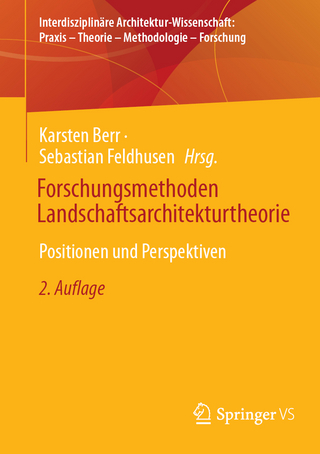
Ethnography after Humanism
Power, Politics and Method in Multi-Species Research
Seiten
2017
|
1st ed. 2017
Palgrave Macmillan (Verlag)
978-1-137-53932-8 (ISBN)
Palgrave Macmillan (Verlag)
978-1-137-53932-8 (ISBN)
This book argues that qualitative methods, ethnography included, have tended to focus on the human at the cost of understanding humans and animals in relation, and that ethnography should evolve to account for the relationships between humans and other species. Intellectual recognition of this has arrived within the field of human-animal studies and in the philosophical development of posthumanism but there are few practical guidelines for research. Taking this problem as a starting point, the authors draw on a wide array of examples from visual methods, ethnodrama, poetry and movement studies to consider the political, philosophical and practical consequences of posthuman methods. They outline the possibilities for creative new forms of ethnography that eschew simplistic binaries between humans and animals.
Ethnography after Humanism suggests how researchers could conduct different forms of fieldwork and writing to include animals more fruitfully and will be of interest to students and scholars across a range of disciplines, including human-animal studies, sociology, criminology, animal geography, anthropology, social theory and natural resources.
Ethnography after Humanism suggests how researchers could conduct different forms of fieldwork and writing to include animals more fruitfully and will be of interest to students and scholars across a range of disciplines, including human-animal studies, sociology, criminology, animal geography, anthropology, social theory and natural resources.
Lindsay Hamilton is Undergraduate Director at Keele University Management School, UK. Nik Taylor is Associate Professor of Sociology at Flinders University, Australia.
1. Introduction.- An ecology of ethnographic methods.- Part 1: Foundations.- 1. Why ethnography?.- 2. Listening for the voices of animals.- 3. What can ethnography be?.- Part 2: Field-work.- 4. Visual methods.- 5. Sensory methods.- 6. Arts-based methods.- 7. Hybrids of method.- 8. People writing for animals.- 9. Conclusion: Beyond humanism and into the field.
| Erscheinungsdatum | 20.07.2017 |
|---|---|
| Zusatzinfo | VIII, 210 p. |
| Verlagsort | Basingstoke |
| Sprache | englisch |
| Maße | 148 x 210 mm |
| Themenwelt | Naturwissenschaften ► Biologie |
| Sozialwissenschaften ► Ethnologie | |
| Sozialwissenschaften ► Soziologie ► Allgemeine Soziologie | |
| Veterinärmedizin | |
| Weitere Fachgebiete ► Land- / Forstwirtschaft / Fischerei | |
| Schlagworte | Anthropology • ethnography • Humanism • Philosophy • Politics • Social Science |
| ISBN-10 | 1-137-53932-1 / 1137539321 |
| ISBN-13 | 978-1-137-53932-8 / 9781137539328 |
| Zustand | Neuware |
| Informationen gemäß Produktsicherheitsverordnung (GPSR) | |
| Haben Sie eine Frage zum Produkt? |
Mehr entdecken
aus dem Bereich
aus dem Bereich
Übersetzt von Rudolf Eisler, mit einem aktuellen Geleitwort von …
Buch | Hardcover (2021)
Alfred Kröner Verlag
CHF 16,80
Positionen und Perspektiven
Buch | Softcover (2024)
Springer Fachmedien Wiesbaden GmbH (Verlag)
CHF 109,95


